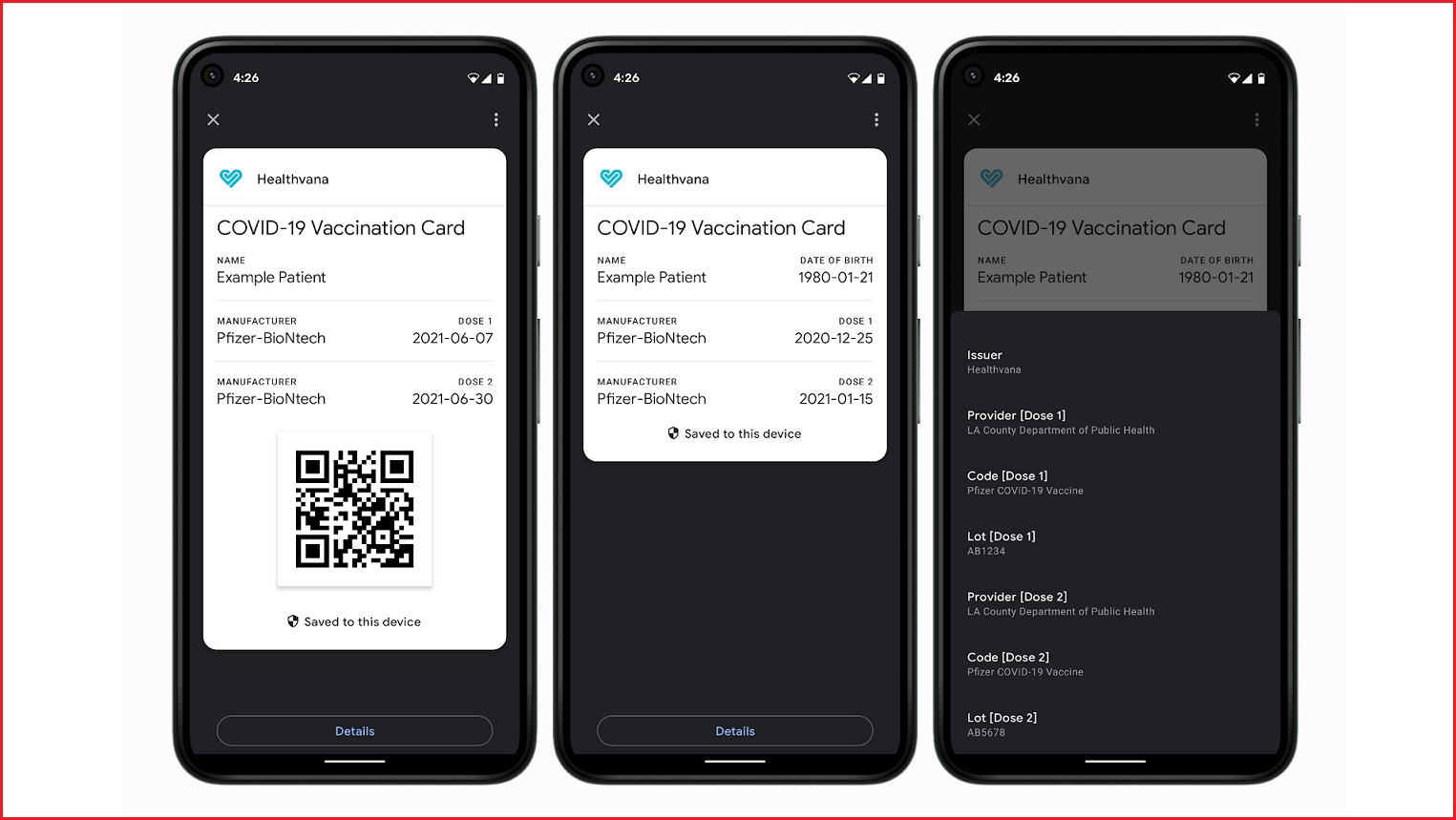As the world opens up and people once again move around freely, COVID passes are looking increasingly likely to enable cross-border travel and a return to other freedoms.
Soon Android users could choose to store COVID-19 vaccination and test results on their phones in the form of a COVID card after Google updated its Passes API to allow healthcare organisations, government agencies and public health authorities to create a digital version of vaccination or test information.
“Once a user stores the digital version of the COVID card to their device, they will be able to access it via a shortcut on their device home screen, even when they are offline or in areas that have weak internet service,” Google said in making the announcement.
Kicking off in the United States, the digital COVID-19 card rollout will then move to other countries and Android devices will need to be running Android 5 or later, giving it a potentially wide user base that should include Australia.
People who opt to store a digital COVID card will also need to be Play Protect certified, which recognises Android compatibility and make them eligible for downloading certain Google apps, although it won’t be necessary to have the Google Pay app installed as it will work through the shortcut.
What about privacy?
With this new feature, Google will potentially have access to sensitive health information, although the search giant has declared that it won’t disclose the information to other parties.
At a time when many users are becoming more concerned about how their personal information is treated, and with Apple looking to turn privacy into a competitive advantage, addressing potential privacy issues is likely to be a key element in building confidence and user uptake.
Google has previously run into trouble with the Australian Competition and Consumer Commission (ACCC) for potentially misleading consumers over the use of personal data after acquiring health platform Fitbit.
Google says its COVID card has been designed with privacy and security at its core and that it does not retain any of the user’s COVID vaccination or test information.
“If a user wants to access this information on multiple devices, they will need to manually store it on each device. Google does not retain a copy of the user’s COVID vaccination or test information,” the company stated.
To share information, users simply show their COVID card to others.
Google explained that the user’s COVID vaccination or test is not shared with its various services or third parties.
Users worried they will suddenly start seeing ads about COVID-related products after storing their information should be reassured because Google says the details are not used for targeting ads.
To protect the information getting into the wrong hands, devices must be enabled with a lockscreen to store the COVID card for added security and to protect the user’s personal information.
A password, PIN or biometric identification is needed on the Android device to access the information.
Could the COVID card become a ‘Vaccination Passport’?
The COVID card may sit alongside other digital immunisation certificates, with some used domestically and others for international travel.
Travellers may soon need a digital version of the 'yellow book’ that was a record of vaccinations and needed for gaining entry to many countries.
There are promising signs that Australia will also have a digital vaccination card that will be more widely recognised.
It’s been reported that plans are underway for an Australian COVID app, with the Australian Digital Health Agency opening a tender for iPhone and Android-compatible immunisation record apps to be developed by the end of the year.
This will most likely be connected to the My Health record system and function as a kind of digital immunisation card.










